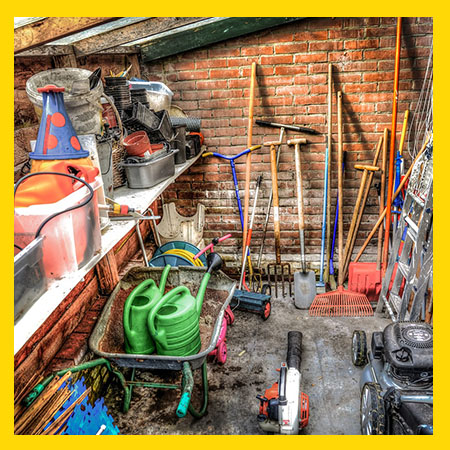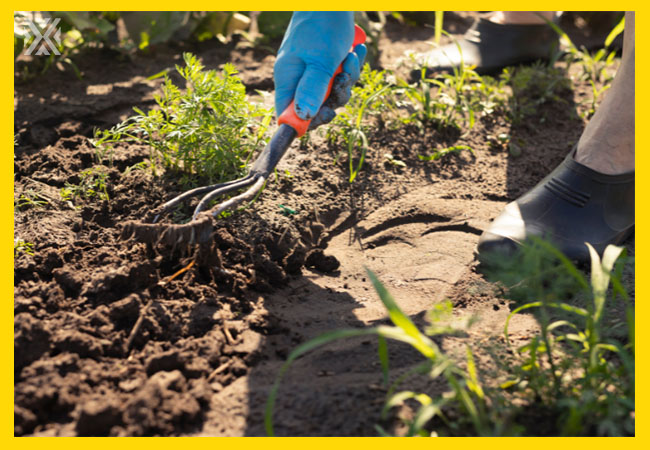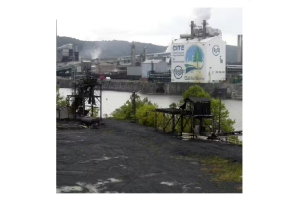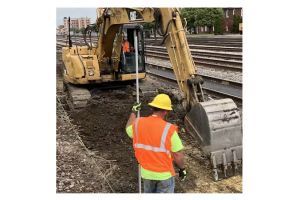Currency
July 31, 2023

Proper sanitation and the thorough cleaning of tools and equipment are considered essential in maintaining a healthy and productive agricultural environment, as it directly impacts the health and productivity of agricultural operations. Farmers and gardeners can optimize their operations, enhance food safety, and contribute to the sustainable growth of the agricultural industry by understanding the importance of sanitation and adopting appropriate cleaning protocols. Here are some reasons why cleaning one’s tools are important and some basic tips on how to go about it.

Maintaining proper sanitation in a garden or field is crucial for ensuring the health and vitality of plants. Regular sanitation reduces the risk of pest and disease outbreaks, which can have devastating effects on agricultural operations. Regular cleaning of tools and equipment helps prevent the spread of diseases, pests, and pathogens that can severely impact crop yields. Farmers can reduce the risk of infections by eliminating contaminants from surfaces and promoting overall plant health.
Sanitation practices are vital to minimize contamination and ensure the safety of agricultural products. Tools and equipment used in farming can come into contact with various substances, including chemicals, fertilizers, and animal waste. A thorough cleaning removes these contaminants, reducing the likelihood of contamination and the potential for foodborne illnesses.
Proper sanitation and cleaning practices also contribute to the efficiency and longevity of tools and equipment. Regular maintenance and cleaning prevent the buildup of dirt, debris, and rust that can impair the functionality of agricultural machinery. By keeping tools clean and well-maintained, farmers can optimize their performance, reduce downtime, and extend their lifespan.
Sanitation practices promote a safe working environment for farmers and workers. Clean and well-maintained tools and equipment reduce the likelihood of accidents and injuries. Additionally, proper hygiene and sanitation protocols protect workers from exposure to harmful substances and ensure their well-being.
Before initiating the cleaning process, it is essential to remove excess dirt, debris, and organic matter from tools and equipment. This can be achieved by using brushes and water sprays. Pre-cleaning prepares the surfaces for a more thorough cleaning and prevents the accumulation of debris during the process.
Different cleaning methods and agents can be used based on the type of tools and equipment. Scrubbing with soap and water is a common practice for removing dirt and grease. In some cases, specialized cleaning agents may be necessary to eliminate stubborn residues or sanitize the surfaces effectively.
After cleaning, proper drying of tools and equipment is essential to prevent rust and mold growth. Air drying or using absorbent materials can be effective for removing moisture. Additionally, storing tools in a clean and dry environment helps maintain their condition and prevent contamination.
Certification programs provide additional validation of proper sanitation practices in agriculture. Certifications such as Good Agricultural Practices (GAP) or Hazard Analysis and Critical Control Points (HACCP) demonstrate a commitment to high standards of cleanliness and safety. Participating in these programs can enhance marketability and consumer trust.
Maintaining sanitation and proper cleaning of tools and equipment is of utmost importance in agriculture. Farmers can achieve successful and sustainable agricultural practices. Implementing effective sanitation practices not only benefits the farm's productivity but also contributes to food safety and the overall well-being of workers and consumers by ensuring plant health, minimizing contamination risks, enhancing operational efficiency, and complying with regulations.

Prevention of pest and disease outbreaks
Maintaining proper sanitation in a garden or field is crucial for ensuring the health and vitality of plants. Regular sanitation reduces the risk of pest and disease outbreaks, which can have devastating effects on agricultural operations. Regular cleaning of tools and equipment helps prevent the spread of diseases, pests, and pathogens that can severely impact crop yields. Farmers can reduce the risk of infections by eliminating contaminants from surfaces and promoting overall plant health.
Minimizing contamination and food safety risks
Sanitation practices are vital to minimize contamination and ensure the safety of agricultural products. Tools and equipment used in farming can come into contact with various substances, including chemicals, fertilizers, and animal waste. A thorough cleaning removes these contaminants, reducing the likelihood of contamination and the potential for foodborne illnesses.
Enhancing operational efficiency and longevity of tools
Proper sanitation and cleaning practices also contribute to the efficiency and longevity of tools and equipment. Regular maintenance and cleaning prevent the buildup of dirt, debris, and rust that can impair the functionality of agricultural machinery. By keeping tools clean and well-maintained, farmers can optimize their performance, reduce downtime, and extend their lifespan.
Improved farm and worker safety
Sanitation practices promote a safe working environment for farmers and workers. Clean and well-maintained tools and equipment reduce the likelihood of accidents and injuries. Additionally, proper hygiene and sanitation protocols protect workers from exposure to harmful substances and ensure their well-being.
Proper cleaning techniques for agricultural tools and equipment
Before initiating the cleaning process, it is essential to remove excess dirt, debris, and organic matter from tools and equipment. This can be achieved by using brushes and water sprays. Pre-cleaning prepares the surfaces for a more thorough cleaning and prevents the accumulation of debris during the process.
Different cleaning methods and agents can be used based on the type of tools and equipment. Scrubbing with soap and water is a common practice for removing dirt and grease. In some cases, specialized cleaning agents may be necessary to eliminate stubborn residues or sanitize the surfaces effectively.
After cleaning, proper drying of tools and equipment is essential to prevent rust and mold growth. Air drying or using absorbent materials can be effective for removing moisture. Additionally, storing tools in a clean and dry environment helps maintain their condition and prevent contamination.
Government guidelines and certification
Certification programs provide additional validation of proper sanitation practices in agriculture. Certifications such as Good Agricultural Practices (GAP) or Hazard Analysis and Critical Control Points (HACCP) demonstrate a commitment to high standards of cleanliness and safety. Participating in these programs can enhance marketability and consumer trust.
Maintaining sanitation and proper cleaning of tools and equipment is of utmost importance in agriculture. Farmers can achieve successful and sustainable agricultural practices. Implementing effective sanitation practices not only benefits the farm's productivity but also contributes to food safety and the overall well-being of workers and consumers by ensuring plant health, minimizing contamination risks, enhancing operational efficiency, and complying with regulations.









